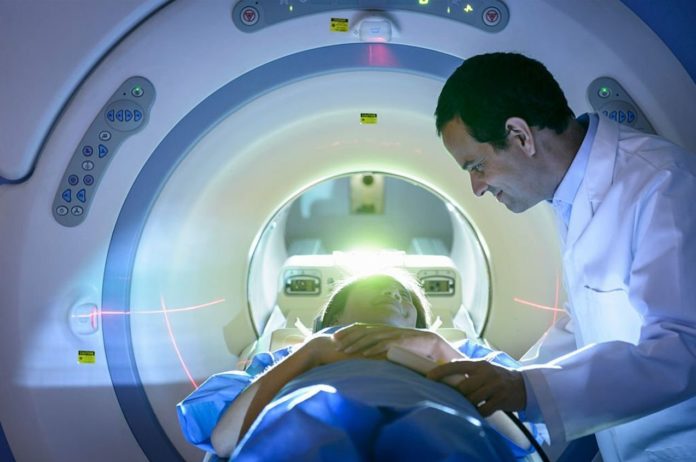Gadolinium-based contrast agents (GBCA) have been used to improve the image quality of organs, tissues, and blood vessels on magnetic resonance imaging (MRI) and to offer a more accurate portrayal of disease for decades. While GBCA are generally considered safe, recent studies have documented many adverse effects associated with their use, including allergic-like hypersensitivity reactions such as redness and flushing.
According to a large, eight-year study published in the journal Radiology, people who have had allergic-like reactions to iodinated contrast media, which is used in a variety of X-ray-based procedures like CT and angiography, are susceptible to similar reactions from commonly used MRI contrast agents.
Additionally, the study discovered that premedication or switching to a different MRI contrast agent may help mitigate risk in patients who have previously experienced contrast agent reactions.
According to the study’s principal author Hye-Ryun Kang, the occurrence of these reactions is on the rise as GBCA becomes more widely used, necessitating immediate investigation into risk factors.
At the Seoul National University Hospital, Dr. Kang and colleagues recently studied more than 330,000 cases of GBCA exposure in 154,539 patients during an eight-year period. A total of 1,304 allergic-like hypersensitivity reactions were reported, representing a 0.4 percent rate. The average recurrence rate in patients who had a previous GBCE reaction was 15%.
Acute allergic-like hypersensitivity reactions, which occur within one hour following contrast injection, accounted for 1,178 instances, while delayed allergic-like hypersensitivity reactions, which occur beyond the first hour and typically within one week, accounted for only 126 cases.
Those who had previously experienced allergic-like hypersensitivity reactions to iodinated contrast media were at an increased risk of allergic-like hypersensitivity reactions to GBCAs. Historically, a history of hypersensitivity to iodinated contrast media was not considered a risk factor for hypersensitivity to GBCAs, and vice versa, due to the structural and chemical distinctions between the two.
“The results of our study challenge this idea,” says Dr. Kang.
According to Dr. Kang, the greater risk could be due to a patient’s existing tendency to drug allergies, rather than any cross-reactivity caused by structural similarities between iodinated contrast media and GBCA. In fact, those who had previously had a hypersensitive reaction to GBCA were more likely to have a comparable reaction to iodinated contrast media.
“Thus, physicians should be aware that patients with a history of hypersensitivity to one of iodinated contrast media or GBCA are at greater risk of developing hypersensitivity reactions to the other,” she adds.
Premedication with steroids and antihistamines, as well as modifying the GBCA, were found to have preventative benefits in patients having a history of acute allergic-like hypersensitivity reactions. The patients who were given premedication before MRI or moved to a different GBCA had the lowest recurrence rate. In patients with a history of delayed reactions, only premedication significantly reduced the occurrence of reactions.
“As the most important preventive measure is avoidance of the culprit agent, a precise record of previously used GBCA should be kept for all patients,” according to Dr. Kang. “Physicians should discuss appropriate premedication strategies with their patients prior to MRI procedures.”
Dr. Kang stressed that contrast-enhanced MRI tests are helpful in the diagnosis and monitoring of a variety of disorders, and that the overall risk is low.
“As most of these reactions are mild, we believe the benefits of MRI outweigh the potential risks associated with GBCA use,” she adds.
Dr. Kang recommends that all patients undergoing an MRI with GBCA exposure have a documented history of previous hypersensitive allergic reactions, and that relevant preventative measures, such as premedication and switching to various forms of GBCA, be undertaken if necessary.
Image Credit: Getty
You were reading: These people are more likely to develop allergic reactions to MRI
